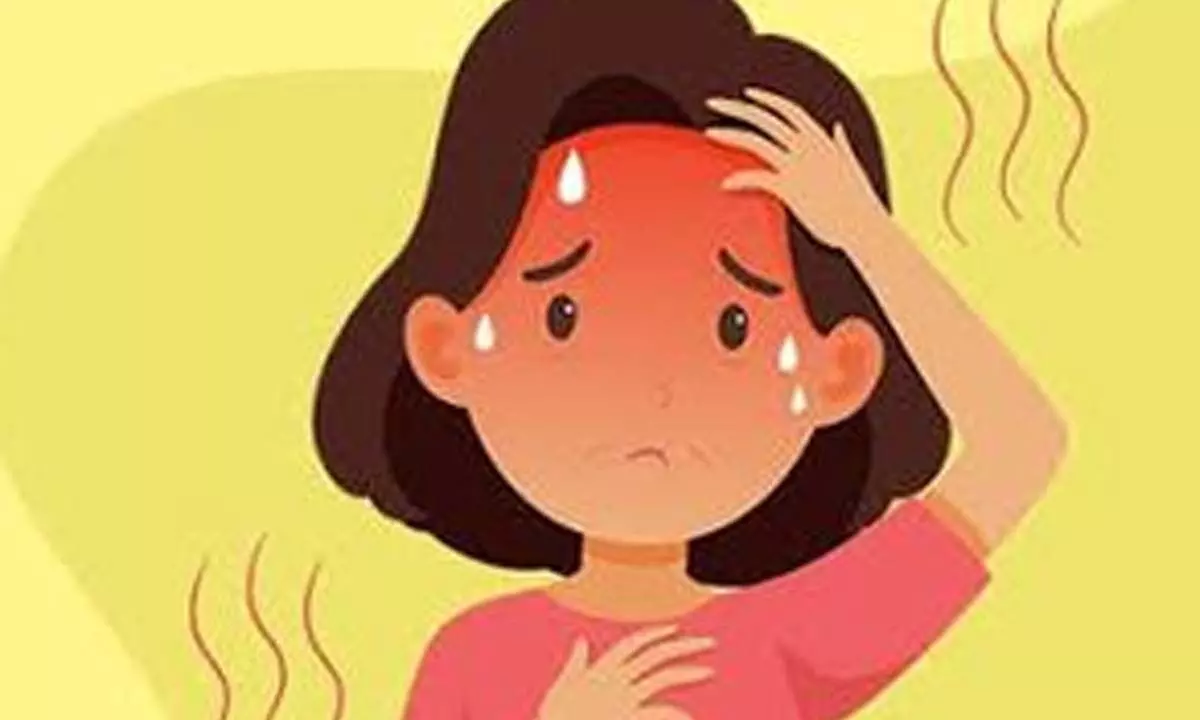Live
- Manipur violence: Assam Police mount 24x7 vigil along inter-state border
- The Impact of Wellness Programs on Employee Engagement and Retention
- IS claims responsibility for deadly attack in Afghanistan
- The Future of MSMEs: Embracing Innovation and Sustainability for Growth
- Army chief returns from Nepal after defence cooperation talks
- ‘Vikatakavi’ shines at IFFI, Goa
- Tamannaah highlights the strengths of south Indian cinema
- Shivanna’s ‘BhairathiRanagal’ locks Telugu release date
- Startup Ecosystem and Technology: Revolutionizing India’s Retail Fashion
- SDT’s ‘Satya’looks favorite at Filmfare Short Film Awards 2024
Just In
Toxic metal exposure may affect women approaching menopause: Study

Middle-aged women who are exposed to toxic metals may have fewer eggs in their ovaries as they approach menopause, according to new research.
New York: Middle-aged women who are exposed to toxic metals may have fewer eggs in their ovaries as they approach menopause, according to new research.
Diminished ovarian reserve is when women have fewer eggs compared to others their age. The condition may be linked to health problems such as hot flashes, weak bones and a higher chance of heart disease, said the researchers in the paper published in The Journal of Clinical Endocrinology & Metabolism.
Menopause is a normal part of the ageing process a woman goes through that causes her monthly periods to end.
The menopausal transition includes the years leading up to that point, when women may experience symptoms such as changes in their monthly cycles, hot flashes or night sweats.
The menopausal transition most often begins between the ages 45 and 55 and usually lasts about seven years.
Studies have linked heavy metals measured in urine with women's reproductive ageing and diminished ovarian reserve. Heavy metals such as arsenic, cadmium, mercury and lead are commonly found in our drinking water, air pollution and food contamination and are considered endocrine-disrupting chemicals.
"Widespread exposure to toxins in heavy metals may have a big impact on health problems linked to earlier ageing of the ovaries in middle-aged women, such as hot flashes, bone weakening and osteoporosis, higher chances of heart disease and cognitive decline,” said Sung Kyun Park, Associate Professor of Epidemiology and Environmental Health Sciences at the University of Michigan in Ann Arbor, US.
“Our study linked heavy metal exposure to lower levels of Anti-Mullerian hormone (AMH) in middle-aged women. AMH tells us roughly how many eggs are left in a woman's ovaries -- it's like a biological clock for the ovaries that can hint at health risks in middle age and later in life,” Park said.
The team studied 549 middle-aged women, who were transitioning to menopause and had evidence of heavy metals -- including arsenic, cadmium, mercury or lead -- in their urine samples.
They analysed data from AMH blood tests from up to 10 years before the women’s final menstrual periods.
They found women with higher levels of metal in their urine were more likely to have lower AMH levels, an indicator of diminished ovarian reserve.
“Metals, including arsenic and cadmium, possess endocrine disrupting characteristics and may be potentially toxic to the ovaries,” Park said.
“We need to study the younger population as well to fully understand the role of chemicals in diminished ovarian reserve and infertility.”

© 2024 Hyderabad Media House Limited/The Hans India. All rights reserved. Powered by hocalwire.com






